-
Advocacy Theme
-
Tags
- Abortion
- Adoption
- Caregiving
- CEDAW
- Disability
- Domestic Violence
- Domestic Workers
- Harassment
- Healthcare
- Housing
- International/Regional Work
- Maintenance
- Media
- Migrant Spouses
- Migrant Workers
- Muslim Law
- National budget
- Parental Leave
- Parenthood
- Polygamy
- Population
- Race and religion
- Sexual Violence
- Sexuality Education
- Single Parents
- Social Support
- Sterilisation
- Women's Charter
A Recap: Apa Itu Activist? 2019
December 2nd, 2019 | News, Views
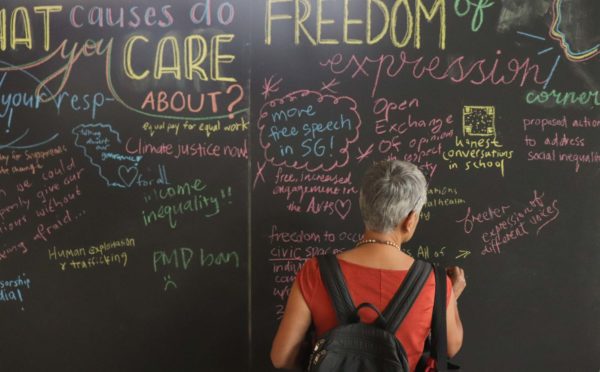
Written by Aria Lee. Photographs courtesy of CAPE/Sun Jie Min.
“Never doubt that a small group of thoughtful, committed, citizens can change the world. Indeed, it is the only thing that ever has.” –Margaret Mead
The third iteration of the Apa Itu Activist? conference was held on Saturday, 9 November 2019 at Yale-NUS College. Co-organised by AWARE, Community for Advocacy & Political Education (CAPE) and several civil society members, Apa Itu Activist? aims to take stock of civil society in Singapore, and develop practices to facilitate meaningful change in the nation’s political climate. It is also a chance for activists from a variety of causes to start important conversations and facilitate meaningful change together.
Divided into morning and afternoon sessions, the panel discussions and workshops were filled with more than 200 passionate participants: students, activists, artists, social sector workers, academics, writers, journalists and regular citizens. (As part of the conference’s eco-friendly efforts to reduce single-use disposables, these guests also brought their own utensils for refreshments.)
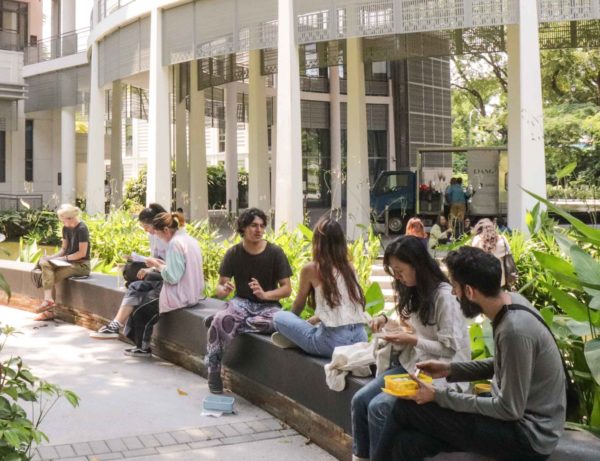
A morning panel entitled “From Merdeka to Millenials: Doing Democracy in Singapore” was moderated by Sudhir Thomas Vadaketh, with speakers Chain Wai Han (Function 8), youth activist Daryl Yang, T. Saasitharan (Arts Engage) and Wong Cai Jie (SG Climate Rally). These intergenerational activists discussed the meaning of activism, how the political environment of Singapore has changed over the years, and the most productive strategies for the future generation of change-makers in the era of social media. Some recommendations included employing strategic research, using social media to show people they are not alone, engaging different sides of political issues and taking an intersectional approach.
The other morning panel, “#callpolice and Other Bad Habits: A Workshop on Empowered Citizen Action”, was moderated by Kokila Annamalai, with Izzaty Ishak and Sobikun Nahar (both from Beyond Social Services), Natalie Pang (NUS), comedian Preeti Nair and musical artist Subhas Nair. This session focused on empowering citizens to shift away from relying too heavily on police intervention and consider various forms of community action when problems arise. Participants analysed real-life situations, such as this year’s E-Pay “brownface” scandal, various recent sexual assault cases in Singapore and Meet-the-People sessions. The conclusion: Perhaps instead of turning to the authorities for every single conflict (and thereby draining state resources), Singaporeans could work harder to foster intra-community dependency, focus on survivor-centric solutions, manage their own strategic partnerships and use online platforms to learn and share.
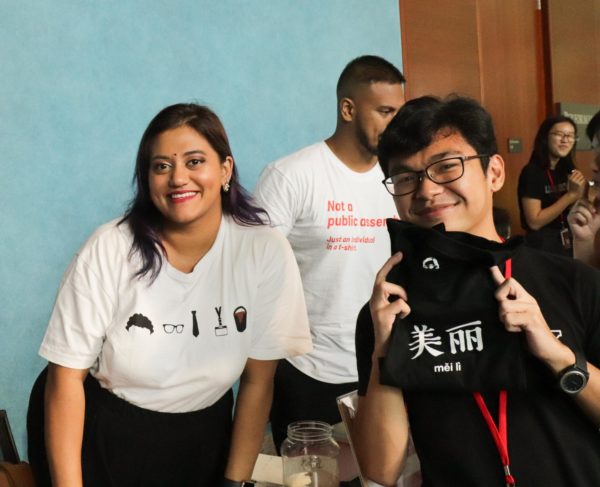
At the afternoon workshop session “Toolkit for Change: A peer learning platform”, speakers from various organisations discussed topics from support groups set up on Telegram to larger-scale community mobilising. They also shared numerous ways to get involved with movements at an individual and community level, such as attending public forums, volunteering and signing petitions.
At “Community for Organising: From Potluck to a People’s Movement”, panelists Akm Mazharul Abedin (Kohon Recitation Learning Centre), Jolovan Wham (Community Action Network), Nurul Fadiah Johari (Penawar), independent community organiser Willie Yeo and community activist Zubee Ali talked about giving underrepresented people a voice. They emphasised the need to recognise structural issues that made it difficult for these communities to be represented, to pay attention to smaller-scale issues and to be mindful of generational, cultural and socio-economic divides.
At “You Don’t Need Much Space To Do Advocacy: Creative Resistance in Shrinking Spaces”, writer and human rights activist Jolene Tan, June Chua (The T Project), Annika Mock and Wong Pei Chi (both from SG Climate Rally) and Jean Chong (Sayoni) reflected on the constraints of the civil society space in Singapore. As civil society faces various barriers and limitations today, the speakers said, it has become more vital than ever for disparate organisations to build coalitions, pool their information and resources, and overall keep resilient in a changing political climate.
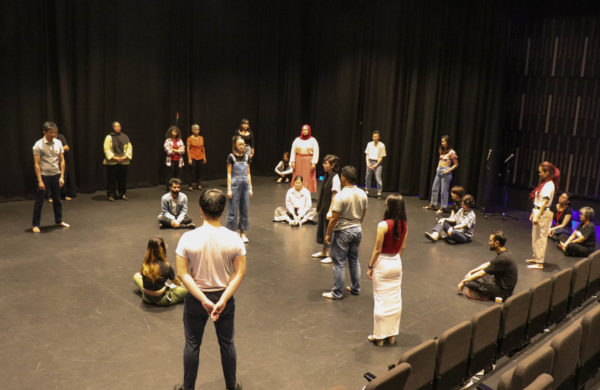
“Community Care: Sustaining Ourselves and Each Other” focused on the draining and exhausting aspects of activism and the importance of both self-care and community care. It was led by theatre director Chong Gua Khee, Reetaza Chatterjee and Rachel Pang (both from Your Head Lah!), Rocky (Cassia Resettlement Team), Vanessa Ho (Project X) and social worker Yap Ching Wi. Participants discussed how community care must include community accountability as well, and that we should not feel guilty for taking time off our work for ourselves.
During breaks, participants also had the opportunity to take part in several hands-on activities, including a zine-making booth and a free speech corner containing boards upon which guests could sound off with their thoughts.
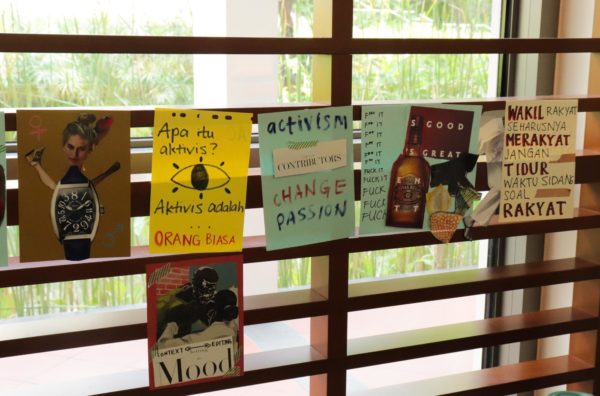
One main takeaway from Apa Itu Activist? was that activism is not homogenous. While there was much to agree upon at each panel discussion, the diversity of speakers in every session meant the occasional clashing of perspectives on Singaporean activism. During “From Merdeka to Millenials: Doing Democracy in Singapore”, for example, younger and older speakers squared off about how “radical” modern activism is compared to activism of yore. Of course, healthy debate of divergent opinions is very much in the spirit of grassroots democracy, and the crowd welcomed the chance to hash things out in an open forum.
Another takeaway was that having a strong passion for social justice is not enough: Beyond that, strategic organisation and utilisation of resources is key for any kind of effective change. Knowing which sectors of the community to engage, which departments of the government to collaborate with, and which community resources (e.g. social workers and NGOs) to leverage are all essential in translating passion into actual results.
Finally, the conference affirmed that we can all stand to learn from one another. Every speaker brought unique insight to the table, forged by their own particular identities and circumstances. This drove home, too, the importance of forums like Apa Itu Activist?. Without continuing opportunities to gather and learn from each other’s experiences, activists would be greatly stymied, doomed to repeat the same mistakes.
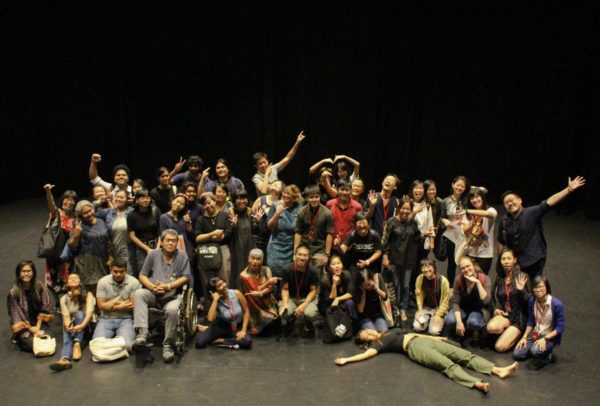
As such, step by step, we must continue to break down any barriers to communication and collaboration, and move towards a more progressive future together.



